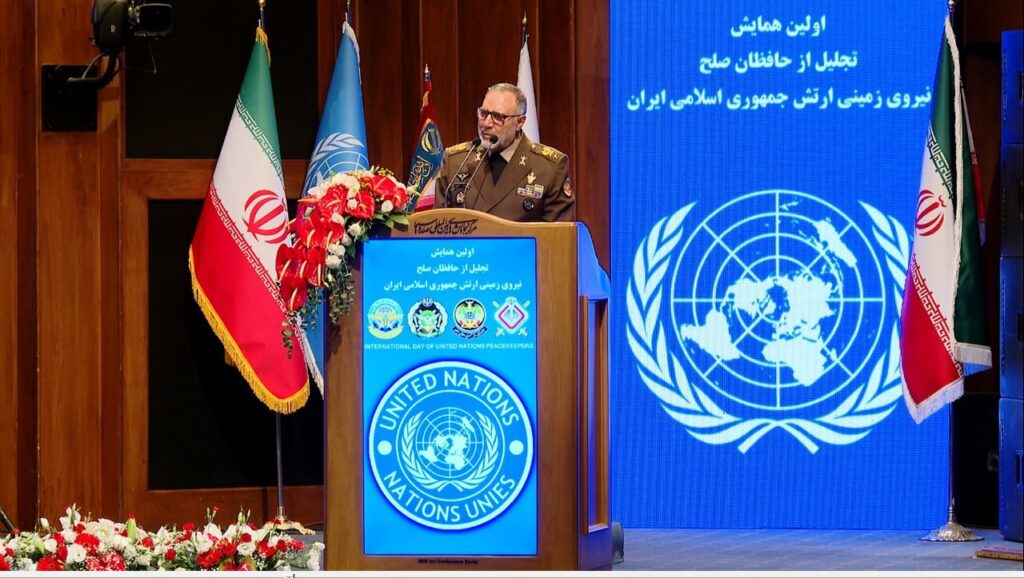TEHRAN – At a ceremony held on Sunday, Brigadier General Kiumar Haidari, commander of the Iranian Army Ground Forces, announced the deployment of 21 Iranian military officers into international peacekeeping missions in four African countries: Africa, Ethiopia, Sudan and Mali.
General Haidari revealed that these officers have been dispatched as part of Iran’s dedicated peacekeeping forces.
“We have established a peacekeeping force with the latest standards of training, equipment and operational procedures,” he said, highlighting the military’s commitment to professionalism in multilateral operations.
In addition to the current deployment, the commander announced that 40 elite officers from the Army Ground Force have successfully completed advanced peacekeeping courses in Switzerland, Italy, Turkey and India. These programs are designed to meet UN standards and are part of a broader strategy to prepare Iranian forces to expand participation in international missions.
“So far, 21 officers have been deployed and have participated in field operations across Eritrea, Ethiopia, Sudan and Mali,” pointed out General Haidari. “They performed their duties with discipline and capabilities, reflecting the Iranian military’s capabilities on the international stage.”
He further emphasized that Iranian peacekeeping forces can not only participate in missions as individuals, but are also ready to deploy as organized battalions when requested by the United Nations.
“Our peacekeeping forces are ready for deployment to designated countries, whether single officers or cohesive operations departments,” he said.
Expanding Iran’s strategic stance, General Haidari emphasized that the Army ground forces as professional, trained and dedicated branches are fully prepared when they participate in peacekeeping missions within the framework of international law and receive appropriate order approval.
He emphasized that Nezaja (the Iranian Army Ground Force) is deeply committed to establishing sustainable peace, regional security and compliance with the UN Charter.
“Our view of peace is not just a lack of war,” he said. “It promotes stability, justice and prosperity in all countries.”
“The expert and people-oriented military helps establish a strong, ethical and effective form of peace,” he said. “Leading by religious teaching, the constitution and Iranian defensive doctrine, Nezah considers himself a guardian of national security and a supporter of regional peace and stability.”
Haidari further emphasized that true, lasting peace is possible only through justice, respect for national sovereignty, and resistance to attack and control. “Peace should not mean surrender or passivity in the face of a threat,” he argued.
The commander said Iran’s contributions to peacekeeping included combat forces, humanitarian teams, trainers, drone operators and technical experts.
He also pointed out that such active participation would allow Iranian military to share expertise, improve operational preparation and present realistic and humane images of the military to the international community.
“Our existence in this field,” Haidari said, “should not be seen in military terminology alone, and also provides cultural, moral and humanitarian examples of peace and friendship supported by strength.”
Declaring that the Army’s ground forces are considered part of the global community, Haidari said he would accept cooperation that advances fair, balanced and sustainable peace, both as a moral and professional obligation.
Finally, he announced that Nezaja has officially communicated that with the participation of military representatives of various countries, it is ready to hold a second international peacekeeping course in Iran.
“The proposal was submitted to the Ministry of Foreign Affairs after receiving the necessary approvals from the Army and military general staff,” he said.
Haidari expressed his hope that the planned events supported by Iranian military will mark major advances in defence diplomacy and increased international cooperation in peacekeeping training.

